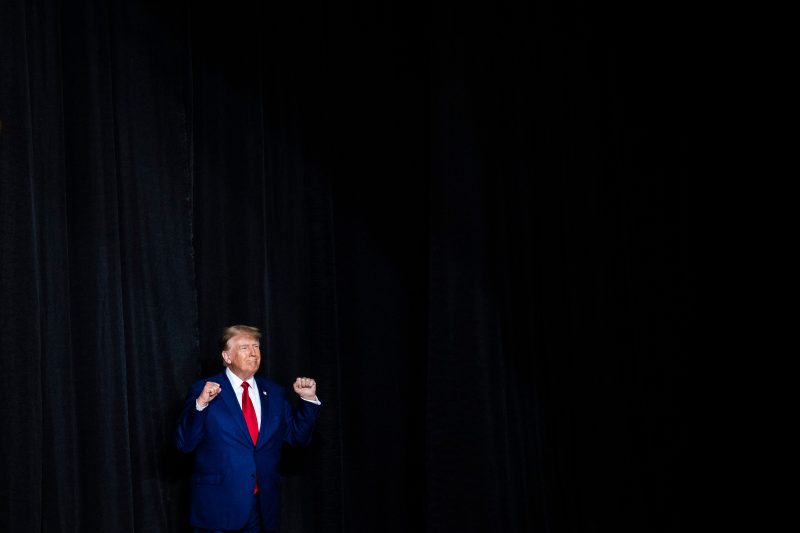Former president Donald Trump asked a judge Tuesday to reverse an attempt by Maine’s secretary of state to keep his name off the state’s primary ballot after she determined that he was an insurrectionist who is ineligible to hold the presidency again under the Constitution.
Trump filed his appeal to Kennebec County Superior Court five days after Secretary of State Shenna Bellows (D) declared his name should not be on the ballot because of his actions before and after the Jan. 6, 2021, attack on the U.S. Capitol. She put her ruling on hold while Trump pursues his appeal.
Trump’s filing came as he prepared a separate appeal to the U.S. Supreme Court over a decision from Colorado’s top court that would keep him off the ballot in that state. Efforts to remove the former president from the ballot in other states are ongoing, increasing pressure on the Supreme Court to resolve the issue for the entire country.
The cases hinge on Section 3 of the 14th Amendment, which says those who have sworn an oath to support the Constitution cannot hold office if they engage in insurrection. The measure — ratified in 1868, three years after the end of the Civil War — was meant to prevent Confederates from returning to power. Trump’s opponents have seized on the provision to argue that he can’t hold office again because he urged supporters to “fight like hell” at the Capitol as Congress was confirming Joe Biden’s 2020 victory.
Voters in Maine challenged Trump’s candidacy under a state law that allows them to file objections with the secretary of state. Bellows last month held a day-long hearing on the issue and two weeks later ruled him ineligible to run again.
Trump’s Tuesday filing appeals that decision. State law requires the Superior Court to decide the issue by Jan. 17, according to Bellows. From there, the case could go to Maine’s top court and the U.S. Supreme Court.
Trump’s attorneys asked the court to order Bellows to place his name on the ballot. Congress has not given state officials like Bellows the power to decide who meets the criteria of Section 3, they argued, so she can’t prevent him from running.
In addition, Trump’s attorneys contended that Trump did not engage in insurrection and his speech on the Ellipse on Jan. 6 did not incite one. And, they argued, the presidency is not one of the offices that is covered by Section 3.
“Maine’s Secretary of State went outside of her authority, completely ignoring the Constitution when she summarily decided to remove President Trump’s name from the ballot, interfere in the election, and disenfranchise the voters of her state,” Trump campaign spokesman Steven Cheung said in a statement.
Bellows said Tuesday that she had confidence in her decision and believed government officials like her must uphold the Constitution. In an interview last week, she defended her ruling, saying she was required to analyze Trump’s actions once his candidacy was challenged. She said she based her decision on the evidence presented to her but knew she would not have the final word on the issue.
“I would welcome a United States Supreme Court ruling,” she said Friday.
The court fight in Maine comes as Trump’s supporters and opponents keep an eye on the U.S. Supreme Court. Trump is expected this week to appeal the Colorado decision, just as the state GOP did, but it will be up to the justices to decide whether to take the case.
The top courts in Michigan and Minnesota have recently found that Trump could appear on the ballot in those states. Cases elsewhere are pending, including one before the Oregon Supreme Court.
If the U.S. Supreme Court does not get involved, there is a risk that different states will reach different conclusions and that Trump will be allowed to run in some states but not others. So far, all of the rulings have focused on primaries and not the November general elections.

